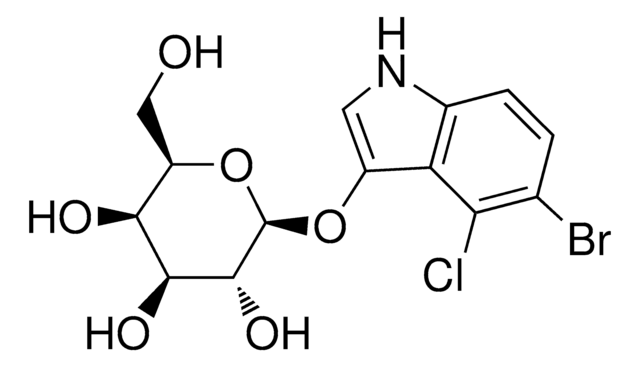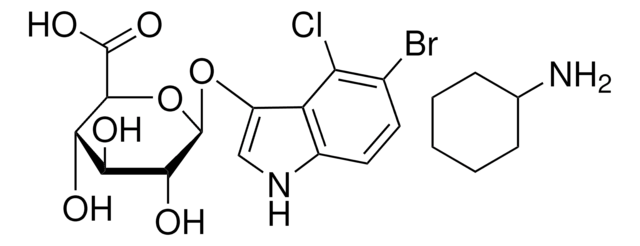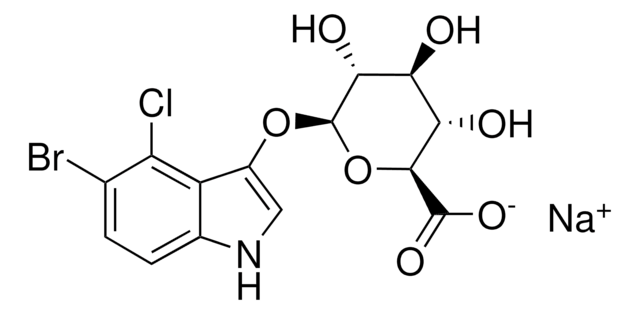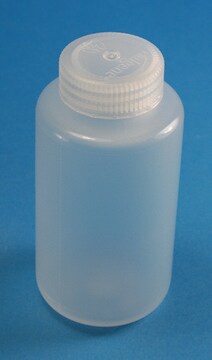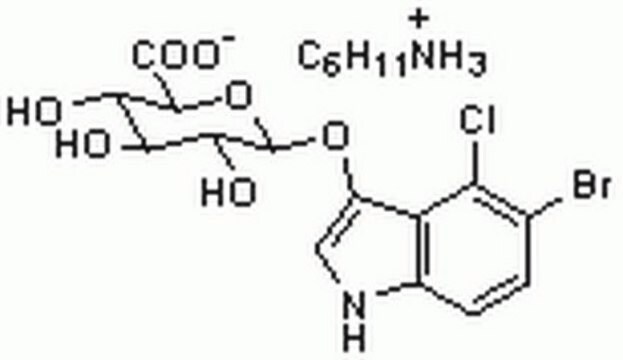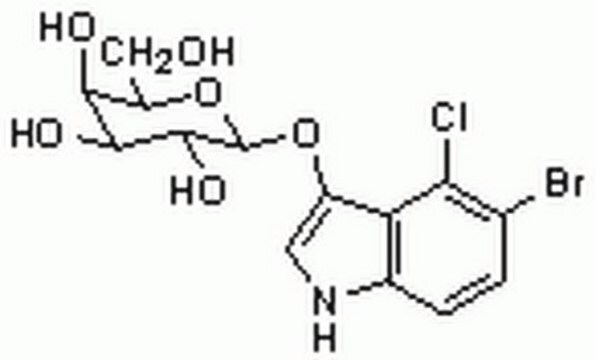B9146
5-Bromo-4-chloro-3-indolyl β-D-galactopyranoside
≥98%, powder, suitable for identification of lac+ bacterial colonies
Sinónimos:
5-Bromo-4-chloro-3-indolyl β-D-galactoside, BCIG, X-Gal
About This Item
Productos recomendados
product name
5-Bromo-4-chloro-3-indolyl β-D-galactopyranoside, ≥98%
Quality Level
assay
≥98%
form
powder
solubility
DMF: methanol (1:1): soluble 50 mg/mL
suitability
suitable for identification of lac+ bacterial colonies
storage temp.
−20°C
SMILES string
OC[C@H]1O[C@@H](Oc2c[nH]c3ccc(Br)c(Cl)c23)[C@H](O)[C@@H](O)[C@H]1O
InChI
1S/C14H15BrClNO6/c15-5-1-2-6-9(10(5)16)7(3-17-6)22-14-13(21)12(20)11(19)8(4-18)23-14/h1-3,8,11-14,17-21H,4H2/t8-,11+,12+,13-,14-/m1/s1
InChI key
OPIFSICVWOWJMJ-AEOCFKNESA-N
¿Está buscando productos similares? Visita Guía de comparación de productos
Categorías relacionadas
Application
Reconstitution
Related product
Storage Class
11 - Combustible Solids
wgk_germany
WGK 3
flash_point_f
Not applicable
flash_point_c
Not applicable
ppe
Eyeshields, Gloves, type N95 (US)
Certificados de análisis (COA)
Busque Certificados de análisis (COA) introduciendo el número de lote del producto. Los números de lote se encuentran en la etiqueta del producto después de las palabras «Lot» o «Batch»
¿Ya tiene este producto?
Encuentre la documentación para los productos que ha comprado recientemente en la Biblioteca de documentos.
Los clientes también vieron
Artículos
General protocols for growth of competent cells and their transformation (uptake of DNA).
Transformation is the process by which exogenous DNA is introduced into a cell, resulting in a heritable change or genetic modification. This was first reported in Streptococcus pneumoniae by Griffith in 1928. Transforming principle of DNA was demonstrated by Avery et al. in 1944.
Protocolos
Yeasts are considered model systems for eukaryotic studies as they exhibit fast growth and have dispersed cells.
General protocols for growth of competent cells in microbial medium.
Nuestro equipo de científicos tiene experiencia en todas las áreas de investigación: Ciencias de la vida, Ciencia de los materiales, Síntesis química, Cromatografía, Analítica y muchas otras.
Póngase en contacto con el Servicio técnico